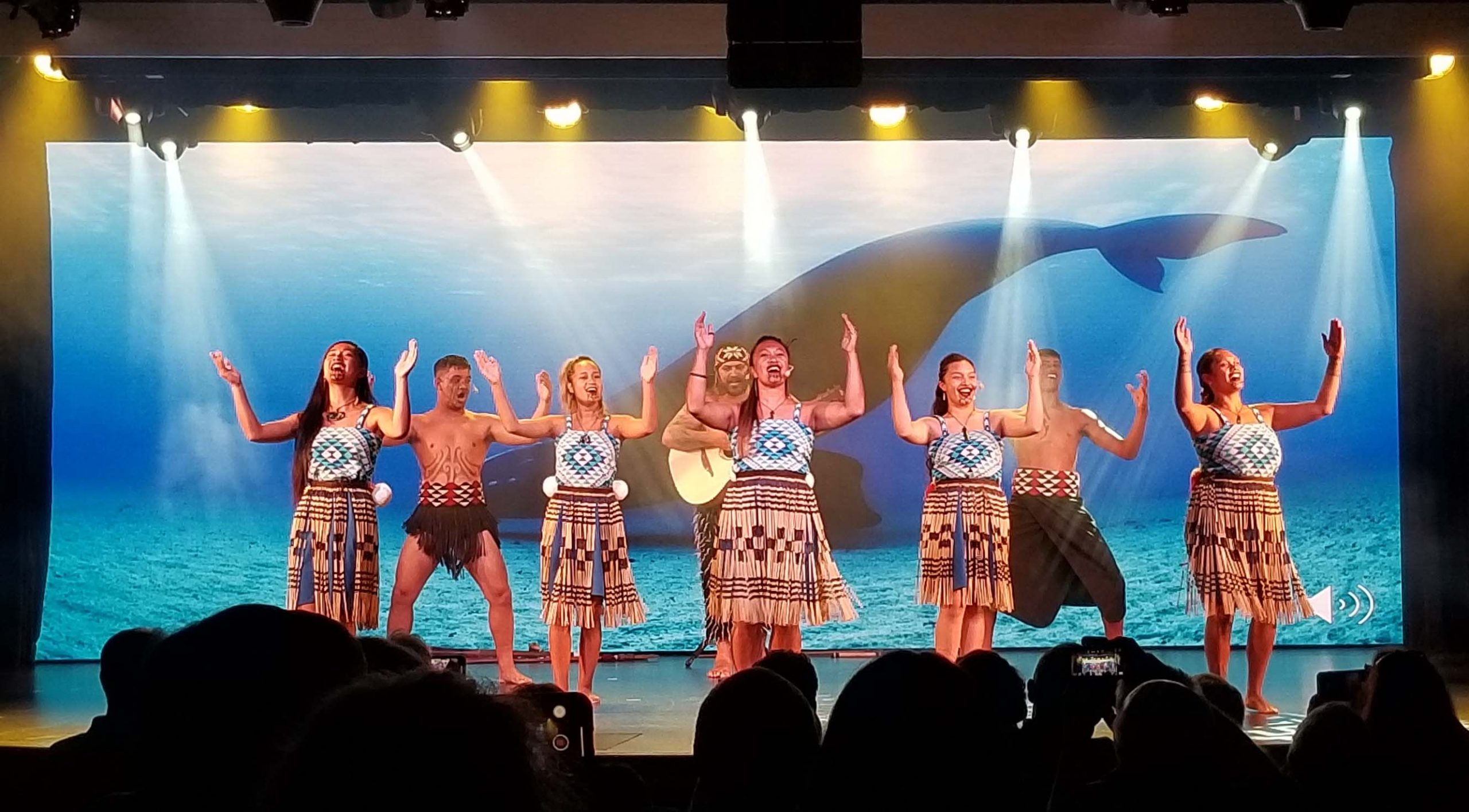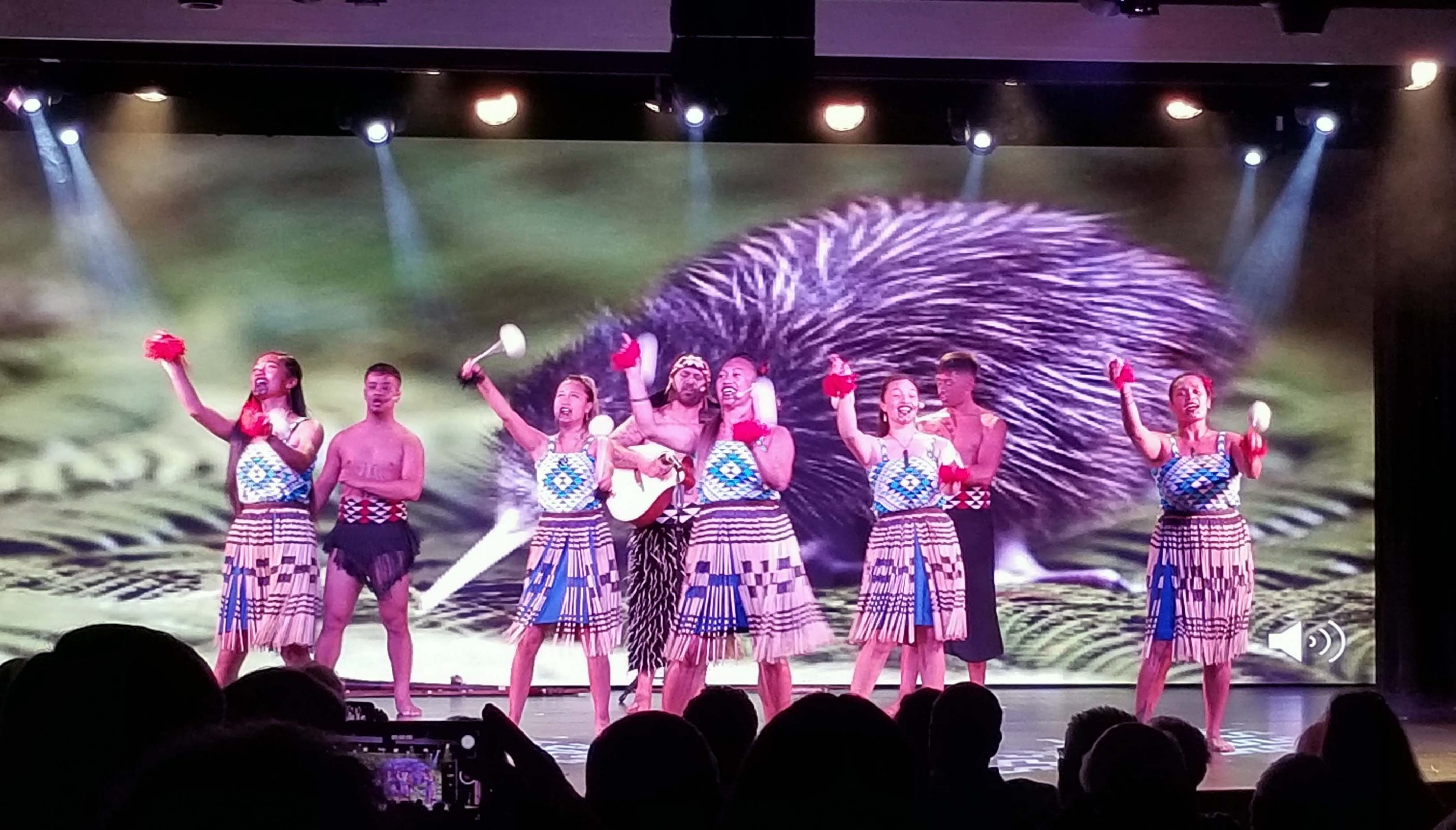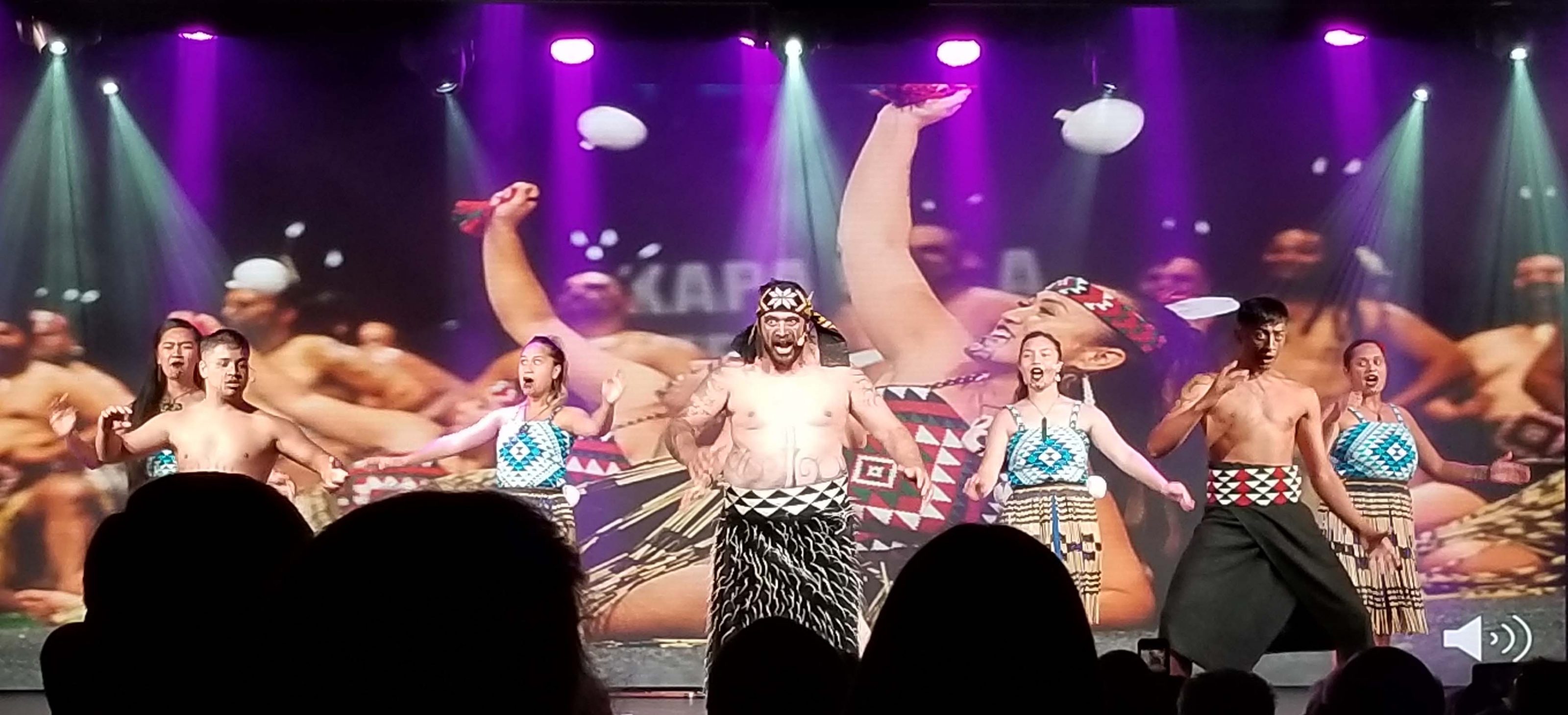Tonight’s onboard entertainment was provided by a group called “Mana Maori.” Mana means a special essence of life, so the performance featured a selection of Maori dances interspersed with spoken information about the Maori culture and some of its dances.
This dance is a peaceful, “let’s have fun together” dance. The skirts are made out of flax, like the demonstration we saw in Rotorua yesterday.

Here’s a celebratory dance in which the women swing white balls on strings around themselves in a variety of patterns. To keep their hands and wrists loose for this, they kept shaking them rapidly between dances. I tried shaking my wrists that quickly, but it’s like belly-dancing or Polynesian hip-wiggling dancing–it obviously takes a lot of practice to make your joints that loose!

My final example from the performance is a war dance. The purpose is to pump up the warriors and to frighten the enemies. Maoris stick out their tongues as far as possible to look fierce. The guy on the right in the photo did a great job of looking fierce. I didn’t want to meet him on the battlefield. Strangely, at the same time, he looked like he could be a lot of fun.

Author’s thoughts: What would happen to racial relations in the U.S. if we followed New Zealand’s example? In 1987, New Zealand passed a law to recognize English, Maori, and sign language as the official languages of the country. After years of punishing Maori people for speaking their native language, Maori is now a required language course in all schools. In addition, New Zealanders recently recognized that history cannot be ignored or buried; it is an integral part of cultural development in a country. As a result, in September 2019, Maori history became a compulsory subject in all schools. What if American schools included the histories of the indigenous Native Americans, the imported African Americans, and other groups of immigrants–including their contributions to American culture–rather than simply mentioning wars, treaties, and laws related to those groups whose histories are embedded in our culture. We are all people, we all have value, and we all like to be recognized for our value as human beings. Think about it.